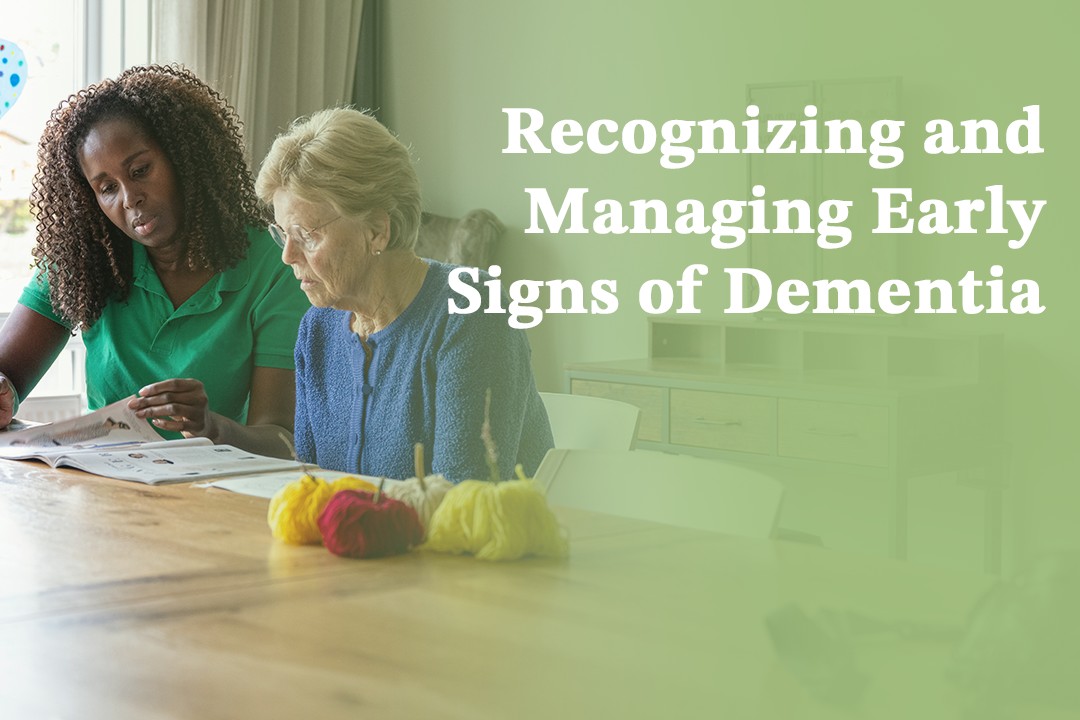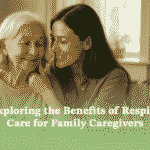When Mr. Rao began misplacing his reading glasses, his family teased him about “senior moments.” The jokes stopped the afternoon he got lost driving the five-minute route home from the market. That single episode pushed his daughter to learn everything she could about the early signs of dementia so the family could act before everyday …
When Mr. Rao began misplacing his reading glasses, his family teased him about “senior moments.” The jokes stopped the afternoon he got lost driving the five-minute route home from the market. That single episode pushed his daughter to learn everything she could about the early signs of dementia so the family could act before everyday lapses turned into safety risks.
Stories like Mr. Rao’s are more common than most of us realize. Worldwide, tens of millions of families are quietly coping with the first hints of cognitive change. Knowing how to spot those hints and what to do next can preserve independence, dignity, and family peace of mind.
Why Early Recognition Matters
Catching the early signs of dementia gives physicians time to identify reversible causes, slow progression with medication or lifestyle changes, and connect families with resources. It also helps loved ones plan finances, legal documents, and memory care preferences while the person can still voice their wishes. Early action does not erase the disease, but it buys the precious gift of choice.
Common Memory-Related Clues
The most talked-about warning is forgetfulness, yet ordinary distraction and true memory loss symptoms differ in subtle ways. For example, forgetting where you parked once in a hectic mall trip is normal; forgetting the route to a familiar friend’s home is not. Other red flags include:
- Repeating the same question within minutes.
- Frequently mixing up dates or seasons.
- Relying on sticky notes for tasks that used to be automatic.
Families sometimes dismiss these patterns as stress, but together they create a road map pointing to cognitive decline in seniors.
Behavioral and Emotional Signals
Not every change involves forgotten appointments. Watch for sudden mood swings, uncharacteristic irritability, or social withdrawal. A once-careful dresser might look disheveled, or a lifelong cook may lose interest in recipes. These shifts can be part of Alzheimer’s early signs, signaling that the brain’s planning centers are struggling.
The Doctor’s Role
Primary physicians begin with a physical exam, medication review, and simple cognitive screens. If those tests suggest early signs of dementia, a neurologist may order brain imaging or neuropsychological evaluations. The goal is to separate normal aging from disease and build targeted dementia care strategies.
Bring a written list of memory loss symptoms and behaviour changes to appointments; families see patterns that patients may downplay. Early honesty is a kindness, and accurate data leads to better care.
Managing Dementia at Home: Practical First Steps
Many families can keep a loved one safe at home for years by blending medical advice with thoughtful daily routines. The following approaches form the backbone of managing dementia at home:
1. Safety First
Install grab bars, remove loose rugs, and add brighter lighting. These changes reduce falls linked to cognitive decline in seniors.
2. Medication and Calendar Stations
Place pill organizers and a large-print schedule in one visible spot. Consistent placement lessens anxiety from misplaced items.
3. Simplified Choices
Offer two shirt options rather than a full closet. Fewer decisions ease frustration, an essential part of humane dementia care strategies.
4. Memory Cues
Label drawers or place photos on cabinet doors. Visual prompts compensate for short-term memory gaps and support memory care goals.
5. Gentle Routine
Keep wake-up times, meals, and walks on a steady schedule. Predictability calms the brain and helps families track emerging Alzheimer’s early signs.
The Power of Brain-Healthy Habits

Exercise, nutrition, and mental stimulation do not cure dementia, but they buffer the brain against rapid decline. Thirty minutes of brisk walking five days a week promotes blood flow, while a Mediterranean-style diet supplies antioxidants. Crossword puzzles, music lessons, or reading aloud challenge neural pathways, small acts that may stall cognitive decline in seniors.
Encourage hobbies the person already loves: gardening, knitting, or singing familiar hymns. Familiar joy is easier to sustain than forcing new interests.
When Professional Support Makes Sense
Even the most devoted family eventually hits fatigue. That’s where in-home agencies, such as Akin staff, are trained on dementia care.. A registered nurse assesses the household, noting early signs of dementia, fall hazards, and caregiver stress points. From there, the team designs individualized visits, perhaps three afternoons a week for medication reminders and conversation, expanding later to daily meal preparation or overnight supervision.
Professional aides trained in memory care use evidence-based techniques: approaching from the front to avoid startling, offering step-by-step cues, and redirecting agitation with music or light chores. These tactics form practical, compassionate dementia care strategies that let families reclaim their role as loved ones rather than round-the-clock nurses.
Financial and Legal Planning
Early diagnosis also signals the time to update wills, powers of attorney, and long-term care insurance. Transparent conversations now reduce legal battles later. A certified elder-law attorney can outline options, while a financial planner estimates the costs of managing dementia at home versus residential memory units. Clear paperwork equals clear peace of mind.
Caring for the Caregiver
Spouses and adult children often ignore their health until exhaustion or depression sets in. Schedule breaks through respite programs, adult day centers, or a sibling rotation. Joining a support group, hearing others discuss memory loss symptoms and daily hurdles, normalizes the journey and provides coping tips.
Remember: sustainable care requires two healthy hearts, the patient’s and the caregiver’s.
A Personal Note of Hope
Mr. Wilson, whose shortcut turned into a wrong turn, now keeps a laminated card in his wallet: “My name is John Wilson. If I look lost, please call my daughter.” He wears a GPS-enabled watch and walks each morning with an Akin Care caregiver who chats about baseball and guides gentle stretching. His family tracks subtle shifts, noting any new early signs of dementia for the doctor. Life has slowed, yes, but it remains rich.
Dementia rewrites routines but not the capacity for joy, dignity, or love. With education, planning, and the right support team, families can honor the person behind the diagnosis.
Final Take-Aways
- Recognize patterns, repeated questions, navigation errors, and personality shifts as early signs of dementia.
- Document memory loss symptoms and bring them to the doctor; timely treatment matters.
- Combine home safety tweaks, predictable routines, and brain-healthy habits to slow cognitive decline in seniors.
- Lean on trained professionals for personalized dementia care strategies and respite.
- Early legal and financial planning protects everyone’s future.
If you’re seeing the first flickers of concern, don’t wait. Reach out to Akin Care Senior Services for a free consultation on managing dementia at home, because the sooner support starts, the longer life’s best moments can continue.






